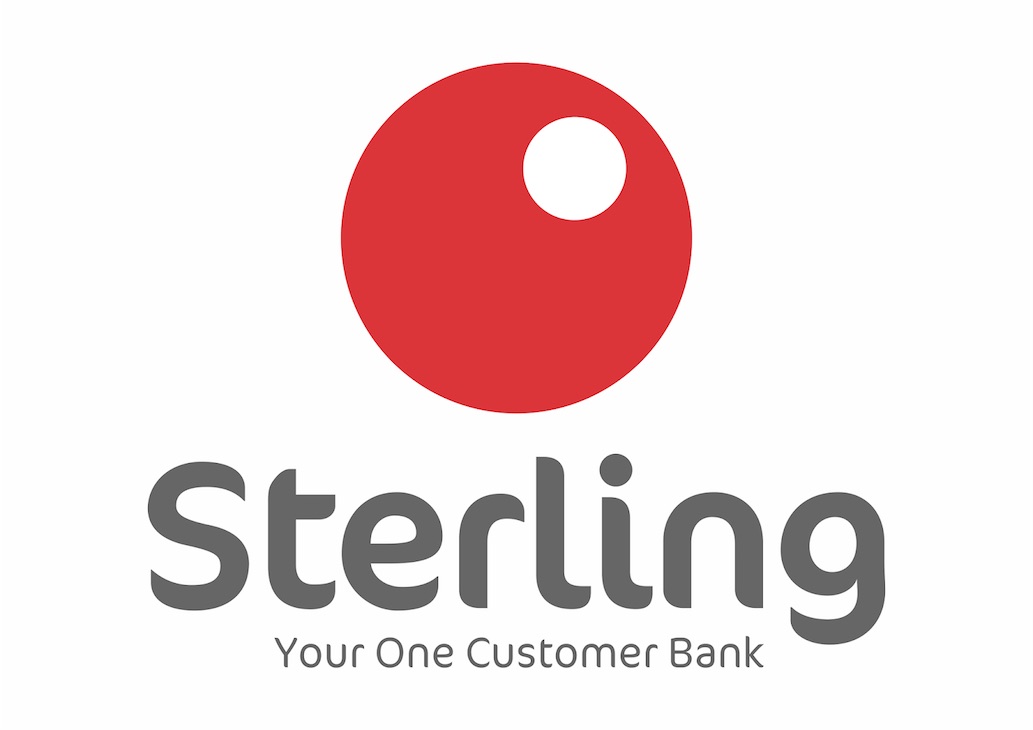BUSINESS
Sterling Bank Maintains Growth Trajectory with 20% Increase in Net Profit

Sterling Bank Plc, a full service national commercial bank, has reported a 20.2 percent growth in its profits for the fiscal year ended December 31, 2021.
The bank, at its recently held annual general meeting in Lagos, reported a net profit of N13.5 billion on gross earnings of N142.
3 billion compared to a net profit of N11. 2 billion on gross earnings of N135. 8 billion in the corresponding period of 2020. These figures represent a 20.2 percent uptick in profit after tax, and a 4.8 percent increase in gross earnings respectively.Commenting on the bank’s financial performance, chairman of the bank’s board, Mr. Asue Ighodalo said, “For us and for the nation at large, 2021 was a year of recovery from the adverse economic effects of the coronavirus pandemic.
” He added that, “Breakthroughs in the development of vaccines for the virus, along with the campaigns to inoculate the global population gained ground and bolstered consumer and investor confidence globally and locally. The pace of economic recovery exceeded expectations despite threats of a third wave and the emergence of variants of the virus. This brought wind to our sails as we navigated the Bank to increase her profitability and growth.”“During the period, we were consistent with our strategy to drive financial intermediation in high impact sectors that aligned with our HEART strategy. This enabled us to focus and deliver innovative solutions that enabled our customers to thrive in a dynamic environment. We are unwavering in our commitment to build a forward-thinking organization focused on delivering the best value to our stakeholders.”
Reflecting on key drivers of the performance, Sterling’s Chief Executive, Abubakar Suleiman, noted that the year’s success was driven by a growth of 28.5 percent in non-interest-income and a 51.4 percent increase in transaction volumes processed – significant numbers that illustrate the effectiveness of the Bank’s recent digitization efforts.
Customer deposits grew by 21.7 percent from the previous year’s numbers, with an improvement in cost-to-income ratios, despite an increase in operating expenses brought about by foreign exchange inflationary pressures.
“We will continue to focus on our HEART strategy, optimize our expenses and lending while strengthening our risk management and recovery practices. These have remarkably improved our exposure with non-performing loans dropping from 1.9 percent in 2020 to 0.7 percent in 2021. Put together, these have enabled us increase shareholder funds by 4.2%,” Suleiman noted.
On other non-financial highlights, Sterling Bank was awarded the 2021 People First Organization by the Chartered Institute of Personnel Management of Nigeria (CIPM) and continued to push the edge with innovative solutions like PayWithSpecta delivered to drive small-business productivity and real-sector growth. The bank also commenced on the largest commercial property solar project in Africa with the remodeling of her Marina headquarters with building installed photovoltaic (BIPV) panels. This will power Sterling’s head office with solar energy and make Sterling Towers the first building in Africa to achieve the feat.
Sterling Bank Plc is a leading national commercial banking establishment in Nigeria. It commenced operations as NAL Bank in 1960. Presently, with total assets of N1.629 trillion, 141 business offices and 700 ATMs nationwide, the bank has grown into a major financial institution.
It is engaged in commercial banking services with emphasis on retail, commercial and corporate banking, trade services, investment banking activities and non-interest banking. It also provides wholesale banking services, including granting of loans and advances; letter of credit transactions, money market operations, electronic banking products and other banking activities.
BUSINESS
PenCom Slams Seven Mortgage Banks for Violating Housing Loans Guidelines

By Tony Obiechina, Abuja
The National Pension Commission has directed Pension Fund Administrators and Pension Fund Custodians to immediately stop accepting or processing equity contribution applications submitted by seven Primary Mortgage Banks over alleged non-compliance with its housing loan guidelines.
This was contained in a circular by the Head of Benefits and Insurance Department, Obiora Ibeziako, and addressed to PFAs and PFCs.
The PenCom circular read, “Following the cited letter, the commission instructs that Pension Fund Administrators, including Closed Pension Fund Administrators and Pension Fund Custodians, immediately stop accepting or processing equity contribution applications submitted by the following Primary Mortgage Banks.
”It listed the affected institutions as Jigawa Savings & Loans Limited, FHA Mortgage Bank Limited, Delta Trust Mortgage Bank Limited, AG Mortgage Bank Limited, Infinity Trust Mortgage Bank Plc, First Trust Mortgage Bank Limited, and Mutual Alliance Mortgage Bank Limited. “Please be guided,” the letter read in part.
According to the spokesman of PenCom, Ibrahim Buwai, the decision followed the failure of the affected mortgage banks to generate the loans for which pension funds had been approved.
He said, “When you have policies like these, you will have rules and guidelines. The whole purpose of giving access to RSA holders is to enable them to own houses through mortgages.
“The whole thing is meant for those who apply and get approved. The monies that get approved are meant to enable them to pay equity through mortgages. So, it was discovered that some of the primary mortgage institutions were not generating mortgages.
“That is just the long and short of it. If that is the case, that means they are not complying with the regulations. That is the reason for their blacklisting.”
The Equity contribution for residential mortgage was introduced in September 2022 by PenCom.
This is the portion of funds that an RSA holder can apply from the RSA balance towards the payment required to secure a residential mortgage. RSA holders are permitted to utilise a maximum of 25 per cent of their RSA balance for this purpose.
As of the end of the first quarter of 2025, about 24,582 RSA holders have benefited from the scheme to the tune of N149.84bn.
Oil & Gas
Nigeria Must Act Fast to Drive Electric Vehicle Adoption – MEMAN

Major Energies Marketers Association of Nigeria (MEMAN) has warned that Nigeria cannot afford to be left behind in the global shift to clean mobility, calling for urgent collaboration to fast-track Electric Vehicle (EV) adoption.
Its Executive Secretary, Clement Isong, gave the warning during an online webinar titled “Accelerating Electric Mobility Adoption in Nigeria by Unlocking Downstream Potential” on Monday.
Isong said that the association had already taken practical steps by installing 12 EV charging and battery-swapping stations alongside five aftersales facilities across the country.
“Collaboration among regulators, investors, and private sector stakeholders is critical to building a viable EV ecosystem in Nigeria.
“MEMAN remains committed to fostering dialogue and innovation in the downstream sector,” Isong said.
He said that with transportation accounting for 28 per cent of Nigeria’s greenhouse gas emissions and rising fuel prices burdening households and businesses.
Director of Operations, Nigerian Midstream and Downstream Petroleum Regulatory Authority (NMDPRA), Dr Mukaila Oseni cited the International Energy Agency’s forecast that the number of EVs worldwide will rise to 145 million by 2030.
“Nigeria must diversify its energy mix, lower transportation costs in the long run, and reduce carbon emissions.
“EV adoption is no longer optional. It is essential,” Oseni said.
He, however, admitted challenges remain: high upfront vehicle costs, weak charging infrastructure, unreliable grid power, and low consumer awareness.
Oseni added that NMDPRA had been reviewing regulatory policies to encourage private investment, technology adoption, and innovative business models.
He further urged stakeholders to leverage the nation’s vast fuel retail network as future charging hubs, while also considering interim options such as compressed natural gas (CNG) and liquefied petroleum gas (LPG) as cleaner alternatives.
The webinar, hosted by MEMAN’s Competency Centre, highlighted financing models, local vehicle assembly, and consumer education as critical tools to make EVs accessible and affordable.
With the world moving rapidly towards electrified transport, participants agreed on one point: Nigeria must act decisively to embed EVs in its energy transition strategy or risk being left behind.
| ReplyReply allForwardAdd reaction |
BUSINESS
FG Bows to NLC Pressure, Appoints Chairman for PenCom

The Federal Government has bowed to the threat of a strike by the Nigeria Labour Congress for not constituting the governing board of the National Pension Commission by appointing Opeyemi Agbaje as the chairman.
The news of Agbaje’s appointment was confirmed by impeccable NLC sources, as well as some industry officials.
At the end of its August 13th meeting, the Central Working Committee of the NLC demanded the constitution of the PenCom Governing Board in line with the law within seven working days.
The NLC also asked PenCom to submit to the NLC a full status report of the funds within these same seven days.Spokesman for PenCom, Ibrahim Buwal, said there was no official confirmation from the presidency yet as to Agbaje’s appointment.
Section 19 of the Pension Reform Act 2014 provides for the establishment of a 16-member Governing Board for PenCom. The Chairman, Director-General, and four full-time Commissioners are to be appointed by the President, subject to confirmation by the Senate.
The remaining ten members are representatives of key stakeholder institutions, including the Nigeria Labour Congress, the Trade Union Congress, the Nigeria Union of Pensioners, and the Nigeria Employers’ Consultative Association, among others.
Meanwhile, the newly-appointed chairman of the pension industry regulator, Agbaje, is the Chief Executive Officer of RTC Advisory Services Ltd (formerly Resources and Trust Company Ltd). RTC Advisory Services Ltd is a strategy and business advisory firm with two main strategic business units-RTC Strategy and Advisory and RTC Policy.
Agbaje has experience in the banking sector. He holds a Master’s degree in Law from the University of Lagos and an MBA from IESE Business School, Spain in 1997. He was previously on the board of the Lagos State Security Trust Fund for two terms between 2011 and August 2019.


















